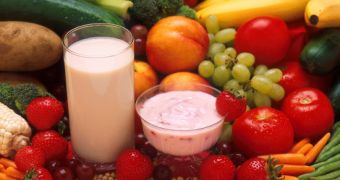In a paper published in yesterday's issue of the journal JAMA Internal Medicine, researchers argue that, as shown by recent investigations, people who eat a vegetarian diet are less likely to suffer from high blood pressure than folks who like to feast on steaks, hamburgers and the like on a regular basis are.
The scientists who authored this paper detail that their conclusion that vegetarian diets work wonders in terms of reducing blood pressure is based on data collected while looking at the findings of 39 studies on hypertension.
The 39 studies whose outcomes the scientists in Japan and in the United States took into consideration were carried out in as many as 19 different countries. What's more, they targeted well over 21,000 people, Live Science reports.
As explained in the paper in the journal JAMA Internal Medicine, it would appear that an average 6.9-point drop in systolic blood pressure, i.e. when the heart muscle is contracting, can be documented in the case of vegetarians.
On the other hand, data at hand indicates that, when compared to meat-eaters, vegetarians display an average 4.7-point drop in diastolic pressure, i.e. when the heart finds itself between beats, the researchers claim.
“Just a 5-point drop in systolic blood pressure, applied on average across the United States, would lead to a 9-percent drop in heart disease, and a 14-percent drop in stroke,” says study co-author Dr. Neal Barnard. “That's terrific,” he adds.
By the looks of it, people who eat meat on a regular basis for several years in a row and then switch to eating chiefly fresh fruit and veggies, beans, whole grains and the like have the most to gain from such a change in their dietary habits.
Thus, in the case of some people, the decision to let go of meat altogether or at least greatly reduce intake has been documented to lower blood pressure both faster and to a greater extent than medication specially designed to tackle this health problem did.
The problem is that, for the time being, there is not enough data available for specialists to be able to draw clear-cut distinctions concerning the health benefits associated with various types of vegetarian diets, i.e. diets that allow no animal products and diets that allow for the regular consumption of eggs and dairy.
Given the fact that high blood pressure has until now been linked to a higher risk of stroke, heart disease, kidney disease and even a shorter life expectancy, the authors of the paper in the journal JAMA Internal Medicine urge that further investigations on the matter at hand be carried out as soon as possible.

 14 DAY TRIAL //
14 DAY TRIAL //